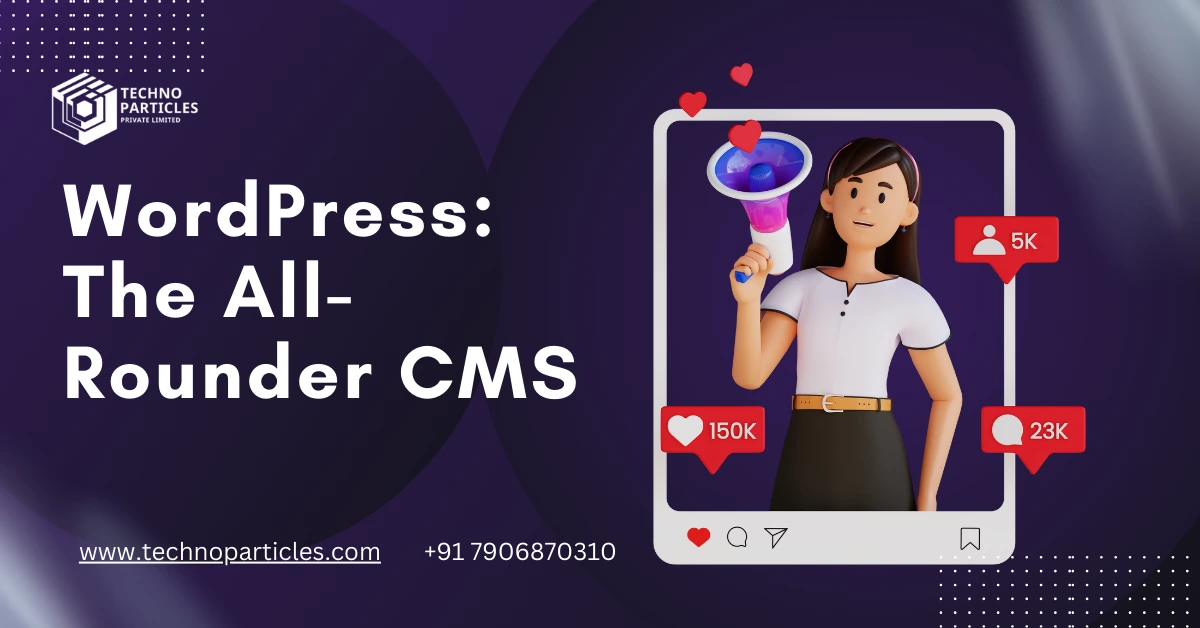h1>3 Game-Changing Content Management Systems for Businesses
A
Content Management System (CMS) plays a vital role in managing and delivering digital content effectively. Whether you're running an e-commerce store, a business website, or a marketing-focused platform, choosing the right CMS can significantly impact your success. In this guide by
Technoparticles, we’ll explore three top-performing CMS platforms and help you determine which one fits your business needs.
1. Introduction
What is a Content Management System?
A
Content Management System is a software platform that allows users to create, manage, and publish digital content without requiring extensive technical knowledge. It provides a user-friendly interface for handling web pages, blogs, e-commerce stores, and more, making it essential for businesses of all sizes.
Importance of Choosing the Right CMS for Businesses
Choosing the right CMS ensures your business can:
- Enhance productivity with easy-to-use tools.
- Scale seamlessly as your needs grow.
- Provide a professional, user-friendly experience for customers.
Selecting the wrong CMS, however, can lead to inefficiencies and limited growth.
h2>3. Shopify: The E-Commerce Powerhouse
Unique Features for Online Stores
- Pre-designed templates for creating professional e-commerce sites.
- Built-in payment gateways and inventory management.
- Mobile-first design for seamless shopping experiences.
Advantages for Small and Large Businesses
- Ideal for businesses of all sizes due to its scalability.
- Excellent customer support and community resources.
- Secure hosting and fast performance.
Integration Options
- Compatible with numerous third-party apps for shipping, marketing, and analytics.
- Supports social media selling and integrations with platforms like Facebook and Instagram.
4. HubSpot CMS: The Marketing-Friendly Solution
Key Features for Marketing and Sales
- All-in-one marketing, sales, and content management tools.
- Personalized user experiences with dynamic content.
- Advanced analytics and reporting for growth insights.
Benefits of All-in-One Functionality
- Reduces the need for multiple platforms, saving time and costs.
- Automates lead generation and follow-up processes.
- Enhances customer engagement with targeted marketing.
Scalability for Growing Businesses
- Ideal for startups and growing businesses looking to streamline operations.
- Flexible enough to handle increasing traffic and content demands.
5. Comparative Analysis
Feature Comparison
| Feature |
WordPress |
Shopify |
HubSpot CMS |
| Usability |
Beginner-friendly |
E-commerce focus |
Marketing-focused |
| Scalability |
High |
High |
Very High |
| Cost |
Affordable |
Moderate |
Premium |
Pricing Overview
-WordPress: Free core version with optional paid themes/plugins.
Shopify: Monthly plans starting at $29, with transaction fees.
HubSpot CMS: Premium pricing starting at $23/month with advanced features.
Which CMS Fits Your Needs?
Choose WordPress if you need flexibility and affordability for content-driven websites.
Opt for Shopify if your focus is on building a robust online store.
Select HubSpot CMS if you require advanced marketing tools and scalability.
Conclusion
Choosing the right CMS is a critical decision for your business's success. Each of these platforms offers unique benefits depending on your goals.
WordPress is perfect for diverse content-focused sites.
Shopify leads the way in e-commerce solutions.
HubSpot CMS empowers marketing-driven businesses with smart tools.
Ready to Revolutionize Your Business with a CMS?
At
Technoparticles, we specialize in guiding businesses like yours to select and implement the best CMS for their unique needs. Contact us today to get personalized recommendations and take your digital presence to the next level!







Leave a comment